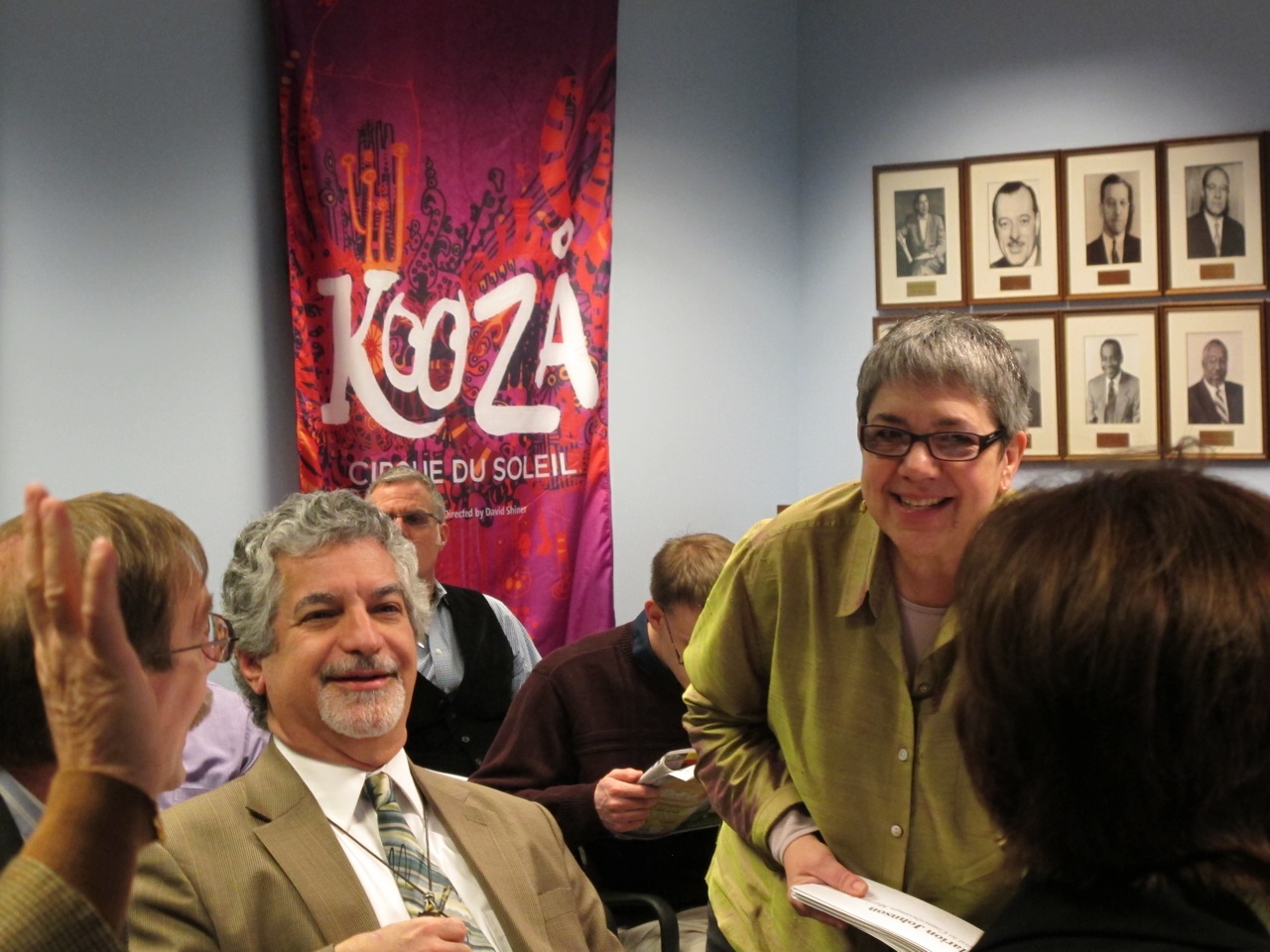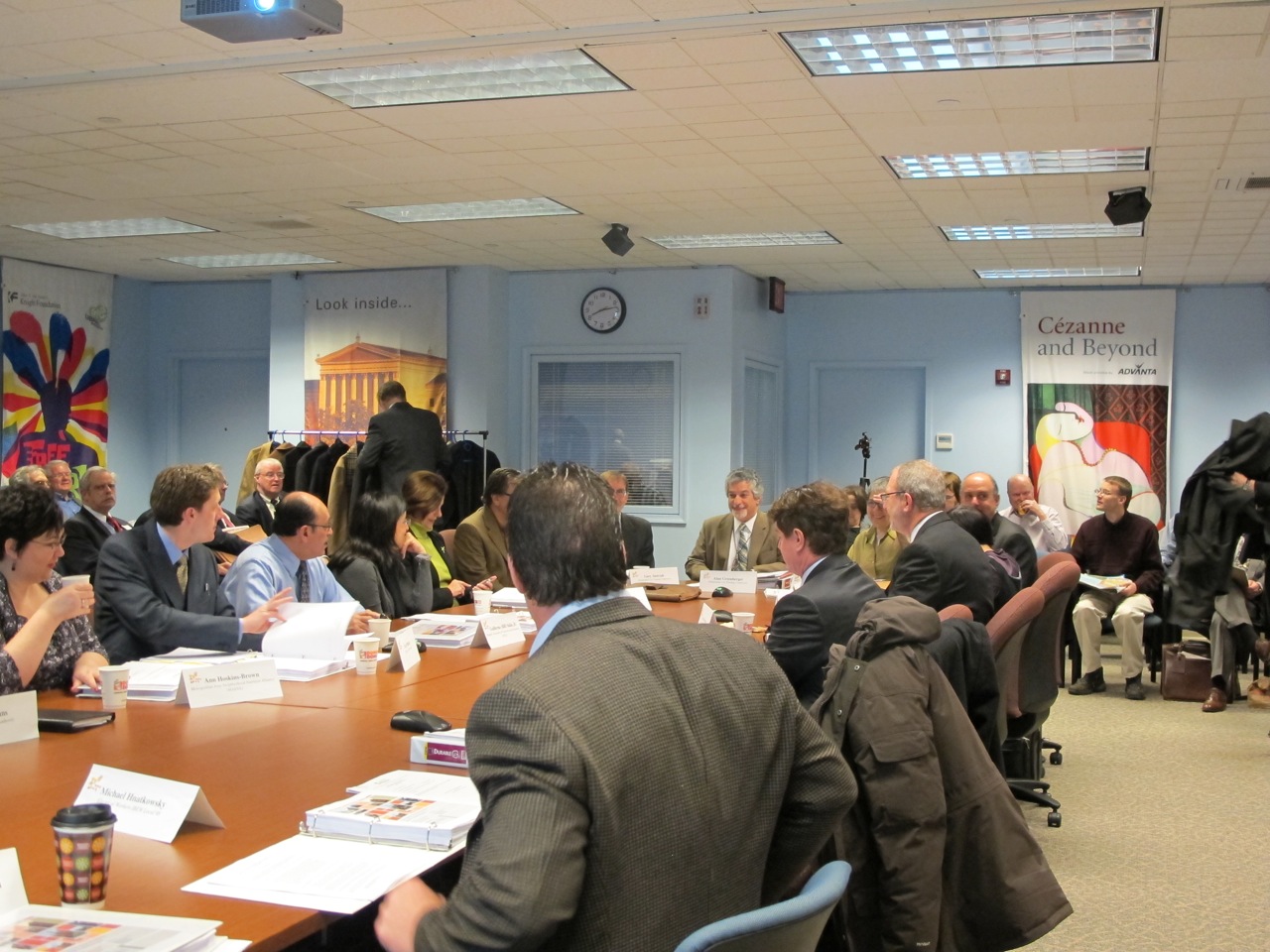ZCC does not vote code rewrite onto council
At its Wednesday meeting, the Zoning Code Commission postponed a scheduled vote on whether to send its preliminary report to City Council. Instead, it passed a resolution to adopt a “Draft Preliminary Report,” as well as continue to meet with stakeholders over the next ten weeks, and to keep revising what will be a second version of the referral draft of the new zoning code.
“That’s not a label that exists in the charter, but it is an acknowledgement of where we think we are today,” said Deputy Mayor Alan Greenberger.
According to Greenberger, after a meeting with City Council leadership the ZCC and Council mutually agreed to delay the transmission of its preliminary report until a time when Council’s agenda is less cluttered.
By this new timeline, the ZCC would be most likely to vote on the preliminary report at its meeting scheduled for May 11. City Council then has up to 45 days to begin public hearings on the new code; Council breaks for summer recess in mid-June. Given that the ZCC then needs time to integrate any revisions before its final report, the process will almost certainly extend into City Council’s fall session.
ZCC Executive Director Eva Gladstein announced that the ZCC would hold biweekly meetings for the next two months to continue addressing stakeholder concerns. The format she suggested was an open-house drop-in situation, either early in the morning or late in the day, to accomodate people with questions or concerns. The Development Workshop’s Craig Schelter suggested that a more formal agenda be used at those meetings, to ensure that the ZCC could address attendees’ questions and comments.
Additionally, Gladstein said the ZCC was preparing packets for each of the district councilmembers detailing how various zoning districts will be renamed and what effects the renaming may have on permitted uses in those districts.
Despite the attempts by a number of commissioners to move quickly to introduce the resolution, nearly an hour of debate ensued before it passed. Councilman-at-large Bill Green worried that comments from the February 18 and 28 meetings with stakeholders had not yet been integrated into the draft.
“There are items that will continue to be reviewed and discussed as we move the two and a half months through. That’s why we’re calling this a draft,” Kelsen replied.
“I don’t know who accepted or rejected the comments that do or do not appear in here,” Green said.
“The whole purpose of this process was to be open and transparent and explain to people why we have accepted or haven’t accepted the changes. What we’re saying is that someone, after saying ‘that’s a good point’ in meetings at least 25 times has decided that theyr’e really not good points, and that we’re not going to have a public dialogue about them,” Green said.
“That’s not what I said,” Kelsen replied. “That’s not what I said at the meetings, and it’s not what I said now, Councilman. We have a period of two and a half months to continue to make this document evolve, for the better.
“I find personally that having this move along will enhance the focus that we’ve been getting from the communities and from the constituencies in a way that has been much better when people recognize that there was a date for movement. It’s amazing to me how much positive feedback we’ve been getting because people thought there was going to be a vote,” Kelsen said.
Green agreed, but emphasized that the resolution was only a statement of the status of the ZCC’s work.
“I just want to clarify when we do the resolution that this is of no legal significance. This is a point in time where the commission is approving a draft that is not going to City Council, that we’re going to continue our work to revise this,” Green said.
A number of commissioners called in by phone to the meeting, including Daniela Hold Voith, Wendella Fox, and Emanuel Kelly.
“This is getting to be an expensive call,” Kelly said, who was calling in from a vacation in the Cayman Islands.
Kelly contended that the two extra public meetings in February were not to introduce new concerns and comments to the code, but rather to share reasoning with concerned stakeholders.
“The purpose was to answer stakeholder comments,” Kelly said, and went on to argue that the commission should pass the resolution to announce where the process is.
“I completely agree with everything you’ve said,” Green replied, “But I wanted the record to be clear that this draft does not accept comments that—I was in the room—that we agreed to make. I just want it on the record so that the public understands that when we met, we agreed to make changes that are not reflected here.”
Commissioner and 10th District Councilman Brian O’Neill reiterated his longstanding concern that in the districts, permissable uses will be changing, and that many community groups and residents neither know about nor are prepared for those changes.
“There’s a whole lot of de facto remapping going on in here,” O’Neill said. “I don’t believe that the consultants or the staff have any idea how impactful they are, how shocking they’re going to be when people find out about them. It should be cleared up at the commission level, not at the Council level.”
Green agreed and spoke about citywide concerns raised by the Crosstown Coaltion, the Development Workshop, and the Philadelphia Bar Association.
“I want to echo what Councilman said,” Green said. “This document as it exists would not pass City Council because many of the reasonable changes from the last two meetings I’ve sat in aren’t here, and the testimony would be against it. There’s no dialogue in Council hearings where you do problem-solving.”
“It’s not going to arrive in its current form, and that’s what we’re going to be working on,” interjected First District Councilman Frank DiCicco. “I’m a little taken aback why we’re wasting so much time.”
Commissioner Anne Papageorge emphasized that this draft preliminary report is only a draft, and that it will continue to change.
“That’s exactly what the next review phase is for, so that the elected officials have an opportunity to review this draft,” she said.
Greenberger agreed.
“When this does get to Council, we’ll have hopefully worked through as many of the issues as we can,” Greenberger said.
“You’ll still hear in Council from people who disagree on particular policy points of view. We’ll do whatever we need to do to get this to be the most agreeable document we could make. If we’re putting things on the record, what I wanted to put on the record is that the three of you”—referring to councilmembers Green, O’Neill, and DiCicco—”and your collegues are not going to get a document that will be universally agreed to. You know this.”
“We agree,” O’Neill said, to laughter.
Greenberger insisted on giving DiCicco the honor of moving the resolution forward, because DiCicco had initated the zoning reform process when Council first authorized a referendum on the charter amendment.
After brief comments that were cut short by a point of order—apparently comments after a motion for a vote may only be on the resolution in question—the commission unanimously approved the resolution, resolving to continue their work.
The next full meeting of the Zoning Code Commission is scheduled for Wednesday, April 13 at 8:00 a.m. 1515 Arch Street, 18th Floor, Room 18-029.
VIDEOS TO FOLLOW
Contact the reporter at ngilewicz@planphilly.com
WHYY is your source for fact-based, in-depth journalism and information. As a nonprofit organization, we rely on financial support from readers like you. Please give today.






